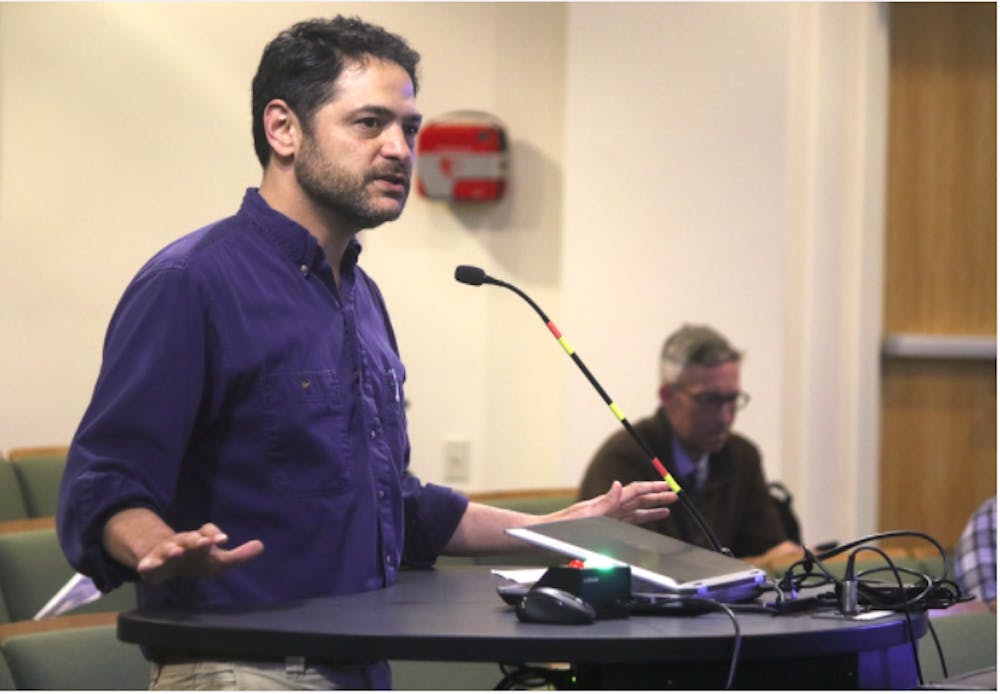But, during this particular election cycle, the lack of challengers isn't limited to Orange County.
In Durham, four incumbents are running unopposed for their respective seats on the N.C. District Court Judge District 14: Doretta L. Walker, Dorothy Hairston Mitchell, Clayton Jones and Amanda L. Maris.
In Raleigh, one member of the Wake County Board of Commissioners, as well as the Superior Court clerk, are running unopposed in the primary.
Why it's happening
Cora Martin, a former staffer at the UNC Institute of Politics and field director for Jonah Garson’s N.C. House campaign, said the lack of competition in this election cycle is a problem for democracy.
“I think that, in order for a democratic society to function, there needs to be participation from people of all backgrounds and all ideologies,” they said.
Martin also said they believe limited salaries and the high cost that come with running for office are two reasons why many people might not run.
Michael Struett, an associate professor of political science at N.C. State University, added that incumbent candidates typically have the advantage of having more funds to campaign.
“What’s generally true about running for office is the candidate with the most money is going to win,” he said. “If there’s an incumbent running who’s been fundraising for however long they’ve been in office, they’re generally not an easy target to remove.”
Chapel Hill Mayor Pam Hemminger said she believes confusion surrounding the primary date has potentially deterred potential candidates from running. The date was postponed to May 17 last year due to the ongoing battle over the state's congressional maps.
“No one knew when the primary would be, which made it difficult for people to know if they could work (running for office) into their schedules,” she said.
Carrboro Mayor Damon Seils said people might be hesitant to run against incumbents who haven't been in office for a long time.
To get the day's news and headlines in your inbox each morning, sign up for our email newsletters.
“I’ve noticed that if somebody’s been in a position for a relatively short period, there doesn’t seem to be a lot of energy or drive in the community to put forward another candidate,” he said.
Rich, who is running for the Orange County register of deeds against incumbent Mark Chilton in the upcoming primary, said shifts at the statewide and federal levels — such as the retirements of U.S. Rep. David Price and N.C. Rep. Verla Insko — might be sapping attention from local politics.
She said since potential candidates are more concerned with federal politics, they might not have the motivation to run at the local level.
“There’s a lot of action going on — it feels like there’s a lot of moving pieces,” Rich said. “So if you go down to the county level and the sheriff and the clerk, I think people are more interested in those House and Senate seats.”
Garson said he believes the COVID-19 pandemic has made campaigning more challenging than usual.
Because Orange County has historically elected more Democratic candidates on average, the Democratic primary often determines who wins the general election.
“Each of these folks have big pluralities of people who think they’re doing a good job in those jobs, and so if you’re another Democrat, you’re not going to challenge them without a super compelling reason,” he said.
@ianwalniuk
@DTHCityState | city@dailytarheel.com
CORRECTION: An earlier version of this article incorrectly stated the court that is currently being challenged unopposed. At the moment, there is only one judge running for a seat on the N.C. District Court. The Daily Tar Heel apologizes for this error.




